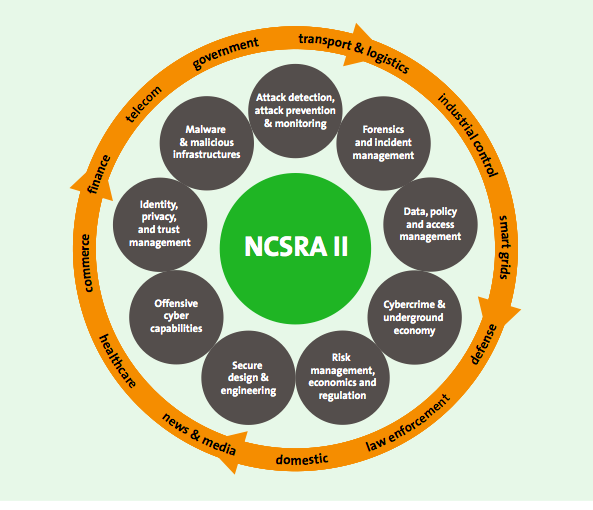Today the AIVD added (in English) the below content to its website. Don’t forget that oversight on Dutch SIGINT is still broken. The AIVD states that regarding mass interception of non-cablebound communications (for SIGINT purposes) it “must present a well-founded request to the minister”. From the CTIVD oversight reports it is clear that the AIVD has been failing to do so in the period 2008-2013.
Interception of telecommunications by the AIVD: rules and regulations
The interception of telecommunications by secret services is surrounded by myths and misunderstandings. What is interception according to the Dutch intelligence services and what kinds of interception do we define? What does the law say? By whom and how are the Dutch intelligence services supervised?Telecommunications have always been a vital source of information in the world of intelligence and security services. And the importance has only increased further, because, just like everyone else, those subject to investigation by the AIVD increasingly use telecommunications and Internet services. In the old days telecommunications mainly consisted of landlines, fax machines and radio links. With the introduction of the Internet and mobile telephones the number of possibilities increased exponentially, including the use of wireless networks, text messaging, chat rooms, etc.Telecommunications can take place in three ways:
- via a wireless connection (non cable-bound), also called ether communication (e.g. mobile telephony and satellite links);
- via cable (glass fibre and copper connections);
- via a combination of the two.
Content and metadata
Telecommunications consist of the message (content) and all the data added for the purpose of transport (metadata), such as a telephone number, an IP number, an email address or location data.
Intercepting telecommunications first and foremost means collecting metadata. Metadata is less substantial in size and can be analysed more quickly. In addition, gathering metadata is a less serious privacy infringement. Analysis of the metadata shows whether the matching content of traffic may be relevant for AIVD investigations.
Most data is irrelevant for AIVD investigations. If, based on a carefully designed assessment trajectory, the data does prove to be important, the Minister of the Interior and Kingdom Relations must be asked for permission to also look at the content.What does the law say?
The Intelligence and Security Services Act 2002 (Wiv 2002) gives the AIVD special investigative powers to intercept, store and search telecommunications, and to gain access to the content, but there are restrictions.
Mass interception versus targeted interception of telecommunications
There are various differences between mass interception and targeted interception of telecommunications.
Mass interception of telecommunications (non cable-bound/ether traffic):
- The interception does not require prior permission.
- You do not yet know who or what you are looking for.
- Telecommunications of several users are intercepted, not just of potentially interesting people or organisations.
- You do not yet know all the characteristics, such as the mobile telephone number and/or email address of a person or organisation.
- You expect to find relevant communications in certain communication streams regarding specific topics, people or organisations.
Targeted interception of telecommunications (cable-bound and non cable-bound):
- This requires prior permission.
- You know who or what you are looking for: the communications of person or organisation ‘x’.
- You possess unique characteristics, such as a mobile telephone number and/or email address of person ‘x’.
- You are allowed to look at the content of the telecommunications.
Cable-bound versus non cable-bound
The difference between intercepting cable-bound and non cable-bound communications has been explained above. In practice, however, telecommunications run both via cable and in the ether. A telephone call to Australia does not run via a single ‘line’, for instance, but is usually transmitted via a ‘collection of wired and ether connections’. Whether telecommunications run via cable or not is irrelevant for content, range or type of communication means. The AIVD is permitted to mass intercept non cable-bound communications only.
Permission
The parameters for approved targeted and mass interception of telecommunications have been standardised in detail by law.
Mass interception of telecommunications (non cable-bound)
Mass interception of telecommunications, for example by means of satellites, does not require the approval of the minister, because its content is not being processed and thus -according to the law- does not infringe the secrecy of correspondence, which includes telephone and telegraph.
Within the bulk of data, which is acquired through mass interception, subsequently a selection can be made to isolate the telecommunications traffic pertaining to one specific person or organisation. Such a selection requires approval of the minister because it infringes on personal privacy. After the selection has been made the content of the communications may be disclosed. (Article 27, Wiv 2002).
The AIVD must present a well-founded request to the minister.
The request must state the reason why it is necessary to employ this special power, whether the invasion of privacy merits the intended result (proportionality) and whether the information cannot be acquired in a different, less invasive, manner (subsidiarity).
Targeted interception of telecommunications
The AIVD is also allowed to intercept, receive, store, research and take knowledge of the content of targeted telecommunications. Within specific parameters the AIVD is authorised to tap public telecommunications networks and services including Internet traffic in real time; the classic eavesdropping (Article 25 Wiv 2002).
A request for targeted interception also must show that the AIVD can substantiate the necessity, proportionality and subsidiarity of the means to be deployed.Supervision
The AIVD is supervised by the independent Committee on the Intelligence and Security Services (CTIVD). The CTIVD oversees whether the AIVD’s (and the MIVD’s) activities are lawful. The CTIVD has also investigated the manner in which the AIVD and MIVD deploy mass interception (Signal Intelligence). The reports pertaining to this subject are accessible on the Committee’s site.
In addition, the Committee on the Intelligence and Security Services (CTIVD) of the Lower House is responsible for the parliamentary supervision of the intelligence and security services. This committee is comprised of the Lower House chairpersons of the parliamentary parties.
EOF
